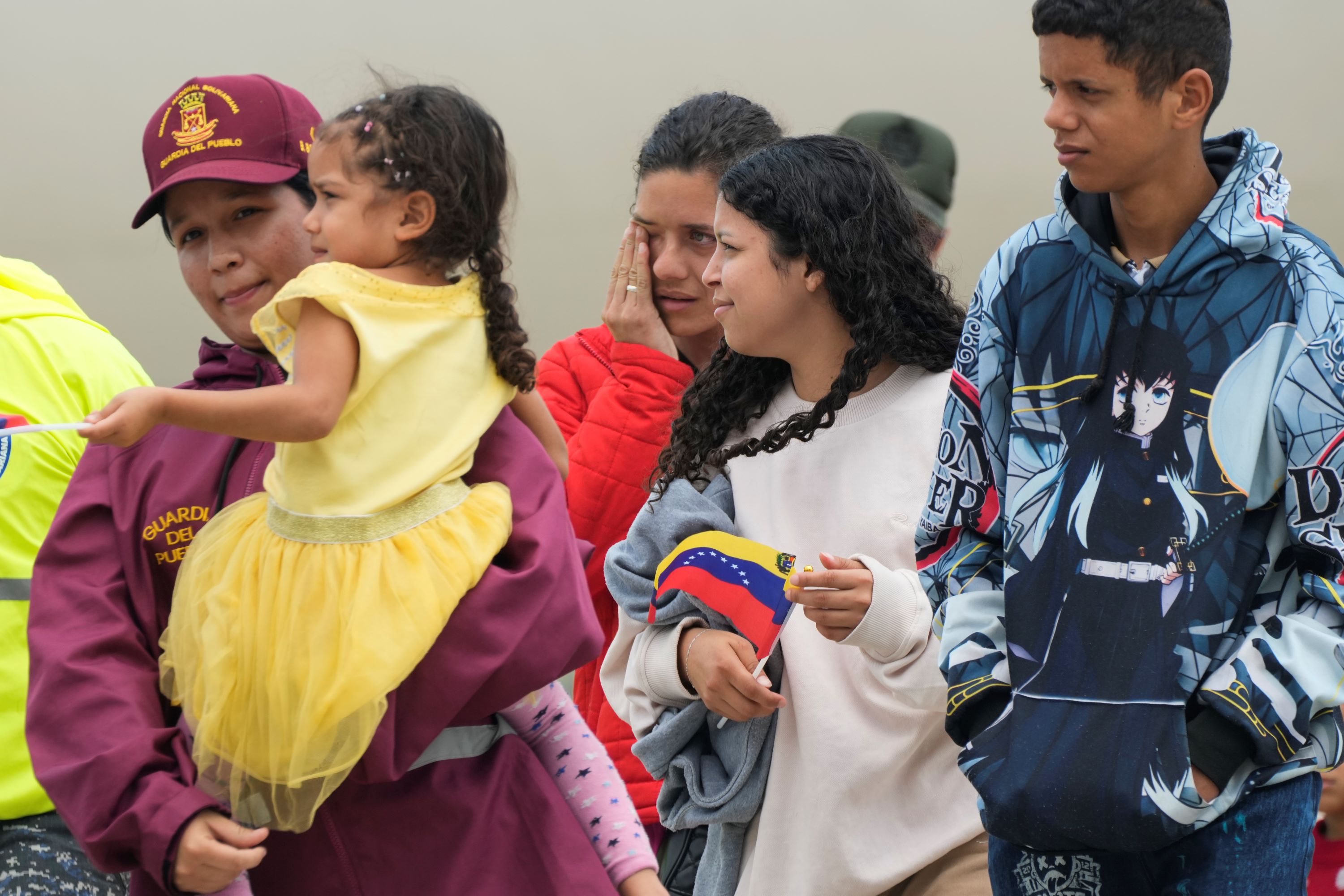
BOSTON/WASHINGTON - A federal appeals court rejected on Monday a request by US President Donald Trump's administration to allow it to revoke the temporary legal status of hundreds of thousands of Cubans, Haitians, Nicaraguans and Venezuelans living in the United States.
The Boston-based 1st US Circuit Court of Appeals declined to put on hold a judge's order halting the Department of Homeland Security's move to cut short a two-year "parole" granted to the migrants under Trump's Democratic predecessor, Joe Biden.
The administration's action marked an expansion of the Republican president's hardline crackdown on immigration and push to ramp up deportations, including of noncitizens previously granted a legal right to live and work in the United States.
READ MORE: US appeals court upholds block on Trump deportation of some Venezuelans
The administration argued Homeland Security Secretary Kristi Noem had discretion to categorically end the migrants' status and that the judge's order was forcing the US government to "retain hundreds of thousands of aliens in the country against its will".
But a three-judge panel comprised entirely of appointees of Democratic presidents said Noem "has not at this point made a 'strong showing' that her categorical termination of plaintiffs' parole is likely to be sustained on appeal".
Karen Tumlin, a lawyer whose immigrant rights group Justice Action Center pursued the case, welcomed the court's decision. She called the administration's actions "reckless and illegal".
The administration could now ask the US Supreme Court to intervene. The Department of Homeland Security did not respond to requests for comment.
A lawsuit by immigrant rights advocates challenged the agency's decision to pause various Biden-era programs that have allowed Ukrainian, Afghan, Cuban, Haitian, Nicaraguan and Venezuelan migrants to enter the country.
ALSO READ: Mexico sends diplomatic note to US over possible new military base near border
While the case was pending, the Homeland Security Department on March 25 announced in a Federal Register notice that it had decided to terminate the two-year parole granted to about 400,000 Cubans, Haitians, Nicaraguans and Venezuelan migrants.
US District Judge Indira Talwani, an appointee of Democratic President Barack Obama, on April 25 halted the agency's action, which she said revoked previously granted parole and work authorizations for migrants on a categorical basis and without a necessary case-by-case review.

She said the department's sole basis for declining to allow the migrants' parole status to naturally expire was based on a legal error, as it wrongly concluded doing so would foreclose the department's ability to legally expedite their deportations.
$1,000 stipend for 'self-deportation'
The Trump administration will offer a $1,000 stipend and travel assistance to migrants who elect to voluntarily "self-deport" from the US, the Department of Homeland Security said on Monday.
The stipend and potential airfare for migrants who voluntarily depart would cost less than an actual deportation, the agency said. The average cost of arresting, detaining and deporting someone without legal status is currently about $17,000, according to DHS.
Trump took office in January, pledging to deport millions of people but so far has trailed deportations under Biden. The Trump administration has deported 152,000 people since January 20, according to DHS, lower than the 195,000 deported from February-April last year under Biden.
READ MORE: Venezuela resumes migrant repatriation flights from US
"If you are here illegally, self-deportation is the best, safest and most cost-effective way to leave the United States to avoid arrest," Homeland Security Secretary Kristi Noem said in a statement.
Trump previewed the stipend plan in April, saying the US would consider allowing migrants to return.
"If they're good, if we want them back in, we're going to work with them to get them back in as quickly as we can," he said.
In the announcement on Monday, DHS said people who choose to leave "may help preserve" the ability to return legally, but did not cite any specific pathway or program.


